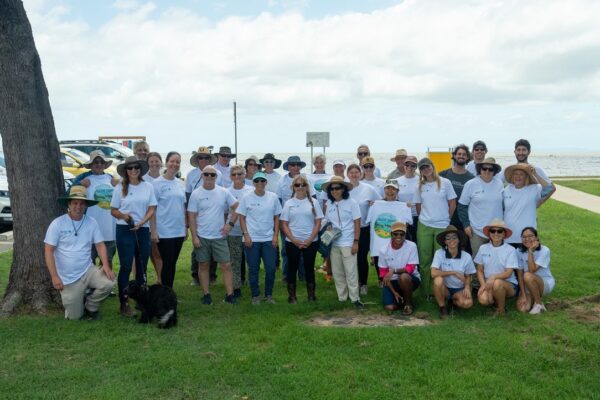This is a guest post by Gail Lemiec, Coordinator at Charlotte Nature Museum
There are many threats facing our ocean, from rising temperatures and acidification to overfishing and marine debris. Despite its vastness, the ocean is affected by people and our choices. We often hear about our ability to negatively affect the ocean with our actions; however, we can also have positive impacts on the ocean. These conservation actions may be born out of a love for the ocean and, ultimately, knowledge of the marine environment.
One way that people become more knowledgeable about the ocean is to have learned these concepts in the classroom. Teachers introduce students to many topics in school but may not be comfortable teaching about all subjects. Professional development workshops can help alleviate any discomfort for teachers, especially regarding complex environmental issues. A recent study on ocean literacy in the classroom led Discovery Place to develop a workshop surrounding this vital topic.
The Study
North Carolina—a coastal state—is split into regions and depending on the location of the school, students may be up to 500 miles away from the ocean. A study recently explored ocean knowledge and attitudes among North Carolina fifth grade students in two schools. One school was in Charlotte, in the Piedmont region, while the other school was at the coast in Morehead City (Fig. 1). The purpose of the study was to investigate if ocean knowledge among North Carolina fifth graders was greater in a coastal school versus an inland school. This study also explored if attitudes about the ocean and ocean conservation were more positive in students at the coastal school versus at the inland school. Students in both schools completed short surveys which were facilitated by science teachers at each location in order to gauge knowledge and attitudes.

A map showing the two locations of the schools that participated in the study to gauge ocean knowledge and awareness. The blue marker represents the Piedmont school while the orange marker represents the Coastal school. Map made on Mapline.com (Mapline, 2014).
Results of the Study
- Results did not show a statistically significant difference in ocean knowledge among fifth graders in the coastal school compared with the inland school; however, average scores exhibited a low overall knowledge about the ocean for both sets of students.
- Students from both schools exhibited positive attitudes about the ocean and the coast, agreeing to take responsibility for protecting it and helping in a beach clean-up if given the chance.
A Call to Action
Armed with these results, educators at Discovery Place decided to offer a teacher workshop specifically focused on raising the level of ocean literacy in schools. Students are already enthusiastic about the ocean; they are looking for more information and ways to help protect it. Teachers can help their students understand the marine environment with the eventual goal that understanding will lead to love and love will lead to conservation.
The teacher workshop will coincide with the World Oceans Day event held at Discovery Place on June 7, 2014. Discovery Place is a well-respected institution in the Charlotte area that focuses on all aspects of science education. Both local residents and tourists alike come to Discovery Place to engage with family-friendly exhibits and special offerings. Furthermore, Discovery Place is becoming well-known among teachers for its professional development opportunities and this is heightened with the opening of the new S.T.E.M. (Science, Technology, Engineering and Math) professional development center. Besides exploring the World Oceans Day activities on the museum floor, teachers will also participate in:
- A behind-the-scenes tour of the aquarium at Discovery Place
- An inquiry activity focused on ocean acidification
- An exploration into the life cycle of jellies, with a hands-on encounter!
- A squid dissection
- Several presentations by professional scientists
Overall, it will be a day filled with excitement and inquiry for the teachers. They will be able to take some new ideas and a sense of enthusiasm home, ready to incorporate both into the upcoming school year! The ultimate goal of ocean education in schools is to have the students grow up into well-informed adults who are capable of making educated decisions about ocean conservation issues. Exploring these issues in the classroom will give students a foundation for making responsible choices in the future.
To find out more about the ocean literacy workshop, go to http://www.discoveryplace.org/events/event/219/World-Oceans-Day-Professional-Development
— Gail Lemiec, Coordinator at Charlotte Nature Museum
Mapline (2014). [Map of NC school locations]. Retrieved from http://app.mapline.com/map.aspx?mapId=60320




